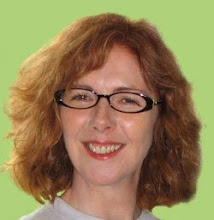 I took this picture of Novodevihcy Convent at dusk when I was in Moscow two weeks ago.
I took this picture of Novodevihcy Convent at dusk when I was in Moscow two weeks ago.This blog post is about some random thoughts on the WorkTech North Conference in Manchester yesterday. Although the conference is advertised as "a forum for all those involved in the future of work and the workplace as well as real estate, technology and innovation", many attending were facilities managers, designers and architects concerned predominantly with the built environment.
The fundamental need to understand how people work and socialise, and how their workplace environments help or hinder them, was a constant theme throughout the day.
Joining the Dots
What struck me was the cross-cutting themes and inter-linked observations I am hearing at various conferences, and I was delighted to hear some of my intellectual heroes name-checked (Karl Weick, for example - see my earlier blog posts passim).
Professor Jeremy Myerson from the Royal College of Arts spoke compellingly about workplace design in the innovation economy. He asked what we mean by 'the knowledge economy'. He identified a continuum of knowledge work, which ranged from highly exploratory, tacit and unformulated (my interpretation) through to more explicit, proceduralised knowledge. The more explicit knowledge is that which is being outsourced.
It is the messy, diffuse, unformulated, creative knowledge we are good at in the UK. And workplaces need to be designed to support this type of knowledge work. So what does this imply for workplace design? Professor Myerson addressed the issue of collaboration and saying that although he is a proponent of open plan offices, developments have gone too far in the direction of facilitating socialisation and collaboration. The need for contemplation and isolation has been overlooked.
Richard Florida
Professor Myerson also referred to Richard Florida's book 'Rise of the Creative Class'. I heard Richard Florida speak at the Workplace 2017 Conference at the University of Waterloo near Toronto in October last year. I thought he was spell-binding. If you have 45 minutes to spare, Florida's talk is available, in two parts, here.
Florida emphasises the crucial role of place; human creativity and talent clusters in places where it is nurtured. He says that Thomas Friedman is only party right. The world is not flat, and electronically and economically global. It is at the same time flat and spiky. Economic activity is concentrated in mega-regions around the globe. He says that "we are seeing one of the greatest migrations in human history, as talented, innovative and entrepreneurial people concentrate in perhaps twenty or twenty-five mega-regions worldwide."
Place attracts people. Place matters, both the place where people work and where people live.






No comments:
Post a Comment